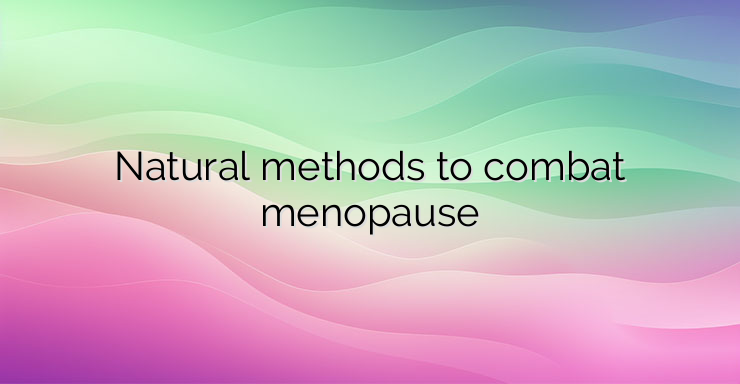Many women between the ages of 45 and 64 use alternative, natural methods that are not usually part of conventional medicine. Therefore, there is a significant need for information about alternative medicine, and physicians should be prepared to answer patients’ questions about its efficacy and safety. More than half of peri- and postmenopausal women use alternative methods of therapy, including foods, herbs, stress management , acupuncture, massages to reduce menopausal symptoms such as hot flashes, joint pain, sleep problems and fatigue. It is an undeniable fact that a change in diet and lifestyle can positively affect health in middle age. Factors such as obesity, diet, exercise and smoking influence the general disposition of menopausal women. Phytoestrogens Phytoestrogens are plant compounds that have both estrogenic and antiestrogenic properties. They are divided into 3 main groups: isoflavones, lignans and coumestans. Isoflavones are found in high amounts in soybeans, soy products, and red clover, and flaxseed is the main source of lignans. The most studied phytoestrogens in the context of menopausal symptoms are the isoflavones, but the results of the studies are still inconclusive. However, it is believed that phytoestrogens could be an alternative form of treatment only in women with mild menopausal symptoms. Regular consumption of soy, for example, significantly reduces diastolic blood pressure and also LDL (“bad”) cholesterol levels, thus reducing cardiovascular risk in menopause. Red clover and the isoflavones in it may also have a modest effect on menopausal symptoms. They have a supporting effect of Vit D and calcium to combat the reduction of bone density and joint pain. The same goes for the active ingredients in flaxseed. NEWS_MORE_BOX St. John’s wort St. John’s wort may be effective for mild to moderate menopausal depression. Women may feel despondent because of body changes or low libido. The herb improves the quality of life, soothes neurasthenia and reduces sleeping problems characteristic of the depressive state. It has no effect, however, on heat waves. St. John’s wort is known to interact with many medications, which can be problematic. According to a study, however, the incidence of adverse drug interactions with St. John’s wort is 10 times less common than with antidepressants. Black cohosh Black cohosh is a perennial plant that grows in eastern Canada and the United States. Contains substances that have an effect similar to estrogen. Therefore, it is used to relieve premenstrual syndrome, menstrual cramps and menopausal symptoms. The combination of black cohosh and St. John’s wort demonstrated a significant positive effect on menopausal symptoms.Other methods Acupuncture is the most attractive alternative method. This is the insertion of needles into specific areas of the body for therapeutic purposes. Yoga, meditation, tai chi could also be appropriate for chronic conditions. For example, tai chi has a positive effect on bone mineral density, improves balance and reduces the risk of fractures in menopausal women. Despite the growing interest in alternative medicine, the current evidence is still inconclusive, and it is likely that conventional medicine is more effective in the fight against menopause. In this case, it is important for the doctor to be informed, to give objective information to his patients about alternative methods, their efficacy and safety.


Leave a Reply